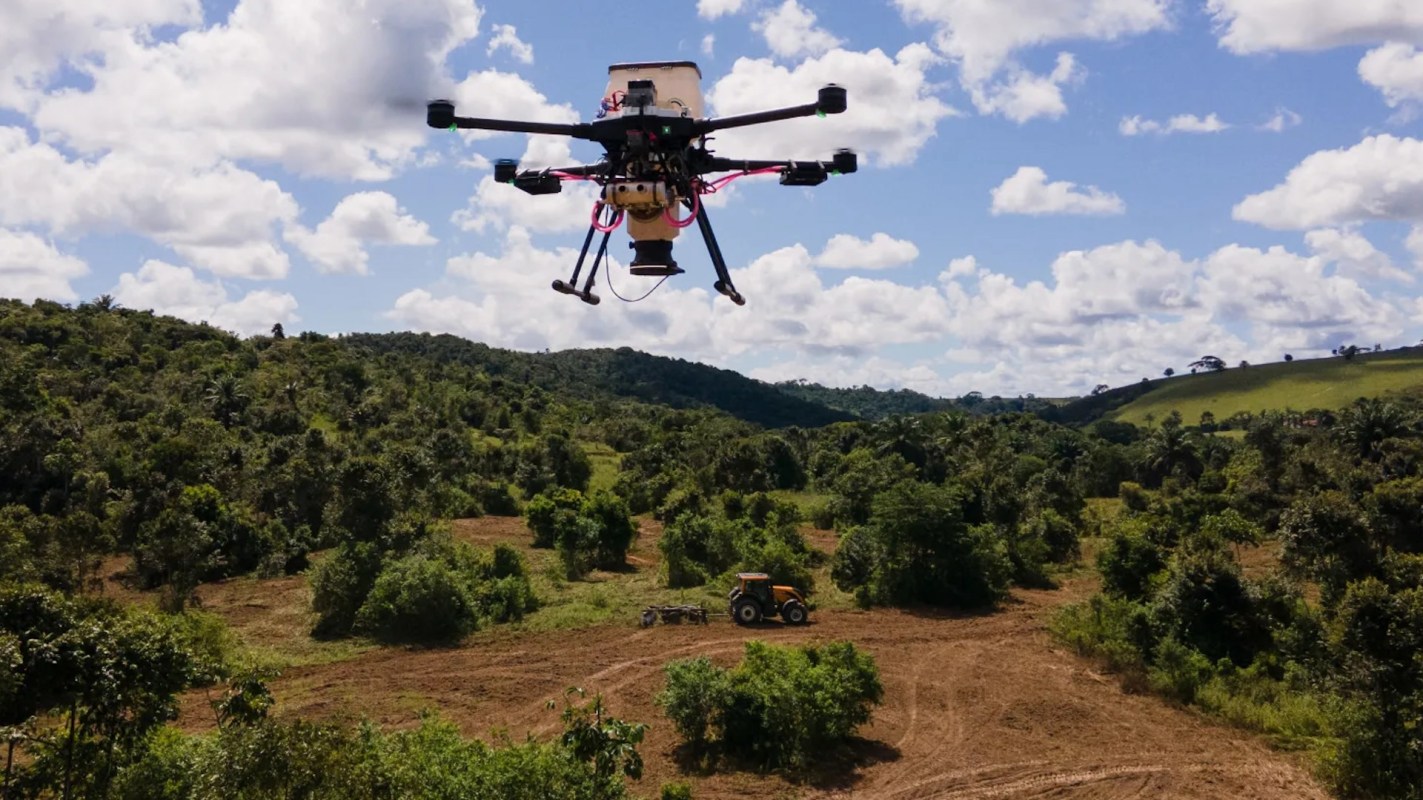A French-Brazilian company has developed a way to deliver seeds to hard-to-reach areas in Brazil's forests.
Morfo has teamed with the city hall of Rio de Janeiro to deliver the high-tech solution, which uses drones to disperse seeds to encourage reforestation.
As Reuters detailed, an analysis of soil and native species is conducted to determine areas that would benefit most from new growth.
Artificial intelligence then finds suitable targets and figures out the appropriate number of seeds to drop in these locations.
In addition to helping the areas that are most in need of new plants and trees, the drones are able to reduce the effort required to get seeds to these areas.
A statement from the company, which Reuters summarized, revealed that one drone can disperse 180 seed capsules a minute, which is 100 times faster than traditional methods typically done by hand.
Morfo Brazil CEO Gregory Maitre noted: "It can access areas that are risky for humans or difficult to access."
Meanwhile, the AI program means there is less of a requirement to nurture seedlings, while targeting dispersal eliminates transport needs, too.
Morfo's impressive system has garnered attention, with the company being named as a top 12 innovator to partner with Trillion Trees to bring reforestation efforts across the globe.
"By addressing critical issues such as forest restoration, carbon sequestration, biodiversity conservation, and livelihood generation, Morfo embodies the transformative potential of innovation in revitalizing our natural ecosystems and contributing to a sustainable future," a company statement read.
Morfo observed that a UN target of reforesting 1 billion hectares of land by 2030 doesn't look like it will be realized, with only 5% of this target achievable as things stand.
"The majority of reforestation projects use low-biodiversity seeds; 90% are monocultures, whereas diversified forests capture 70% more carbon," the company noted.
Using AI to figure out what areas need what type of growth can determine which types of seeds are more appropriate, thus enhancing the potential for carbon capture.
According to Brazil's national space agency, deforestation rates fell by 50% in 2023, with the rate being the lowest recorded in the last five years.
As Brazil's rainforests are some of the most biodiverse on Earth and they provide huge capabilities for removing harmful, polluting gases from the air, efforts to grow more trees in areas blighted by deforestation are extremely important. Thankfully, companies like Morfo are providing ways to make the process much easier.
Join our free newsletter for cool news and cool tips that make it easy to help yourself while helping the planet.









